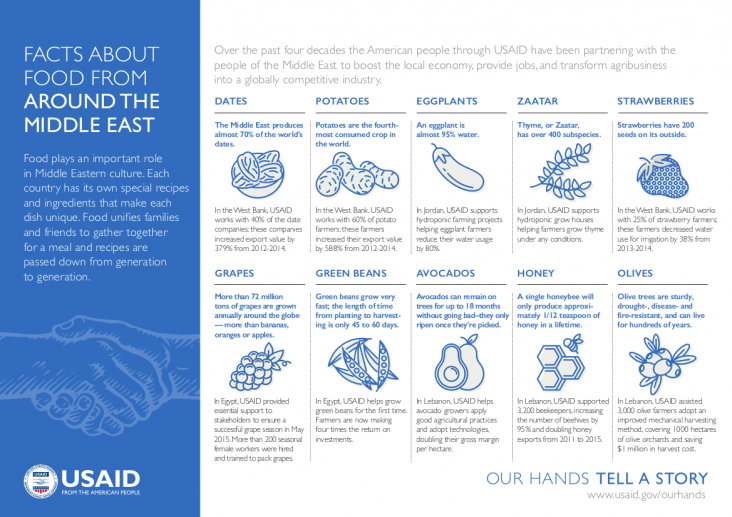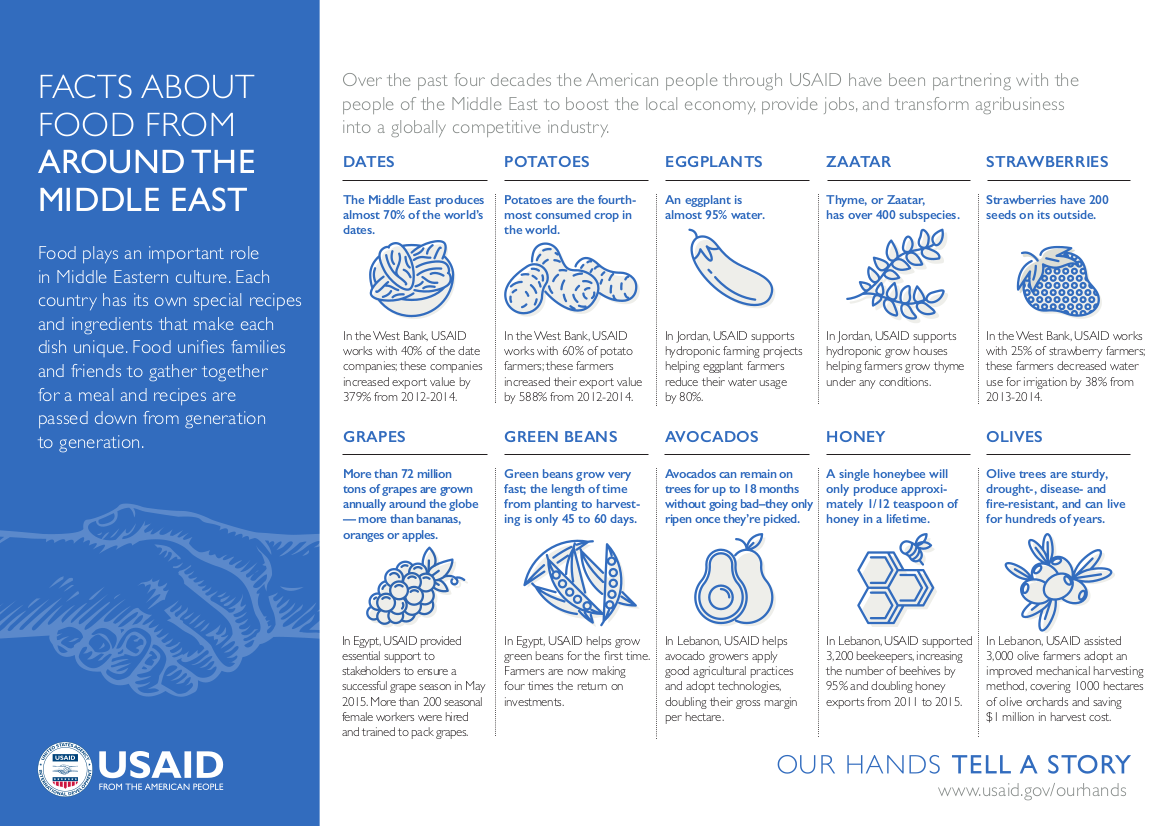FACTS ABOUT FOOD FROM AROUND THE MIDDLE EAST
Food plays an important role in Middle Eastern culture. Each country has its own special recipes and ingredients that make each dish unique. Food unifies families and friends to gather together for a meal and recipes are passed down from generation to generation.

Over the past four decades the American people through USAID have been partnering with the people of the Middle East to boost the local economy, provide jobs, and transform agribusiness into a globally competitive industry.
DATES
The Middle East produces almost 70% of the world’s dates.
In the West Bank, USAID works with 40% of the date companies; these companies increased export value by 379% from 2012-2014.
POTATOES
Potatoes are the fourth-most consumed crop in the world.
In the West Bank, USAID works with 60% of potato farmers; these farmers increased their export value by 588% from 2012-2014.
EGGPLANTS
An eggplant is almost 95% water.
In Jordan, USAID supports hydroponic farming projects helping eggplant farmers reduce their water usage by 80%.
ZAATAR
Thyme, or Zaatar, has over 400 subspecies.
In Jordan, USAID supports hydroponic grow houses helping farmers grow thyme under any conditions.
STRAWBERRIES
Strawberries have 200 seeds on its outside.
In the West Bank, USAID works with 25% of strawberry farmers; these farmers decreased water use for irrigation by 38% from 2013-2014.
GRAPES
More than 72 million tons of grapes are grown annually around the globe — more than bananas, oranges or apples.
In Egypt, USAID provided essential support to stakeholders to ensure a successful grape season in May 2015. More than 200 seasonal female workers were hired and trained to pack grapes.
GREEN BEANS
Green beans grow very fast; the length of time from planting to harvesting is only 45 to 60 days.
In Egypt, USAID helps grow green beans for the first time. Farmers are now making four times the return on investments.
AVOCADOS
Avocados can remain on trees for up to 18 months without going bad–they only ripen once they’re picked.
In Lebanon, USAID helps avocado growers apply good agricultural practices and adopt technologies, doubling their gross margin per hectare.
HONEY
A single honeybee will only produce approximately 1/12 teaspoon of honey in a lifetime.
In Lebanon, USAID supported 3,200 beekeepers, increasing the number of beehives by 95% and doubling honey exports from 2011 to 2015.
OLIVES
Olive trees are sturdy, drought-, disease- and fire-resistant, and can live for hundreds of years.
In Lebanon, USAID assisted 3,000 olive farmers adopt an improved mechanical harvesting method, covering 1000 hectares of olive orchards and saving $1 million in harvest cost.








Comment
Make a general inquiry or suggest an improvement.